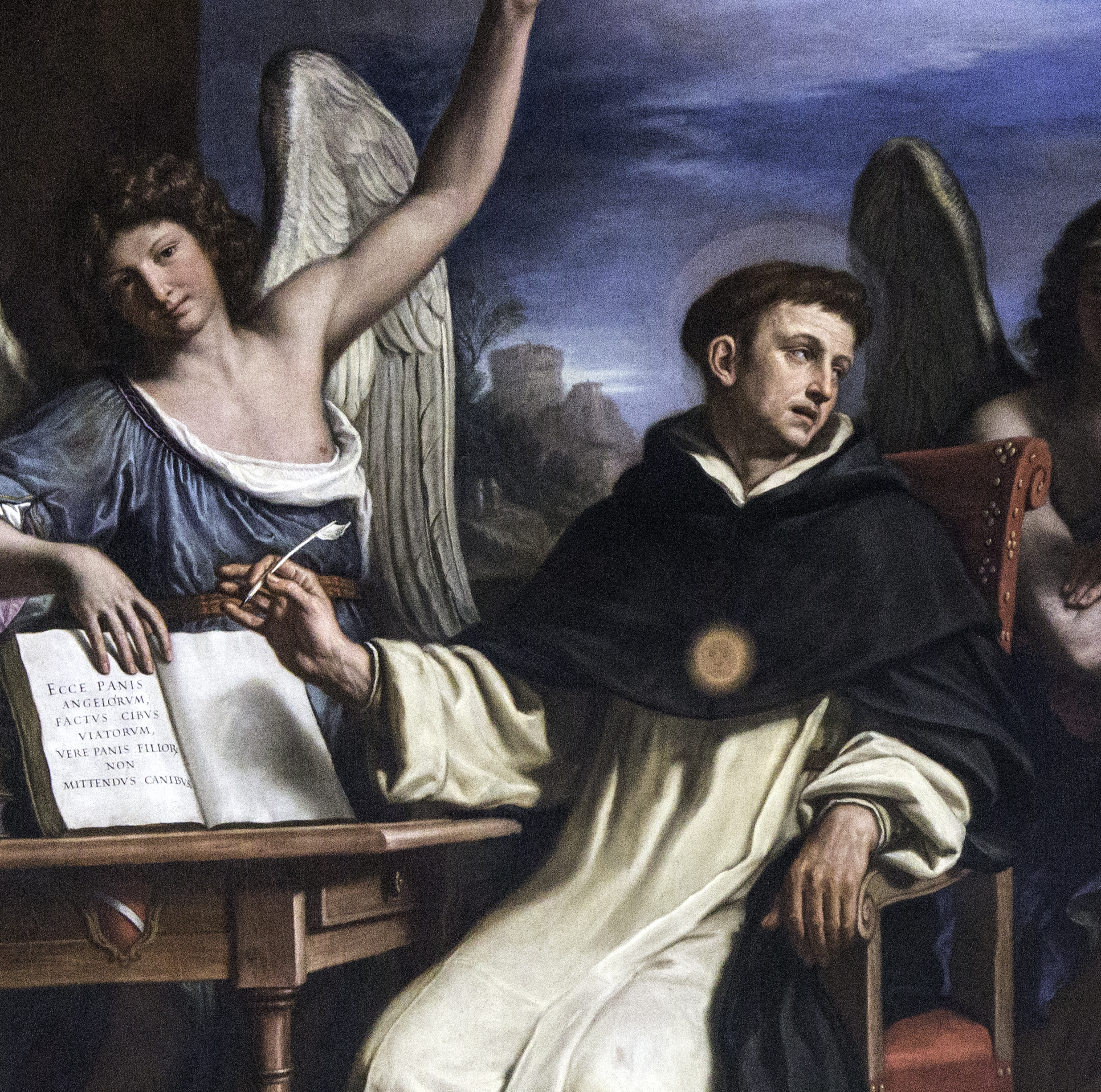Chapter 16: The Divine Persons¶
Person in general is a being which has intelligence and freedom. Its classic definition was given by Boethius: Person is an individual subject with an intellectual nature. [^548] Hence person, generally, is a hypostasis or a suppositum, and, specifically, a substance endowed with intelligence. 549 Further, since person signifies substance in its most perfect form, it can be found in God, if it be stripped of the imperfect mode which it has in created persons. Thus made perfect, it can be used analogically of God, analogically, but still in its proper sense, in a mode that is transcendent and pre-eminent. Further, since revelation gives us two personal names, that is, the Father and the Son, the name of the third person, of the Holy Spirit, must also be a personal name. Besides, the New Testament, in many texts, represents the Holy Spirit as a person. 550.
Now, since there are three persons in God, they can be distinct one from the other only by the three relations which are mutually opposed (paternity, and filiation, and passive spiration): because, as has been said, all else in God is identical.
These real relations, since they are subsistent (not accidental): and are, on the other hand, incommunicable (being opposed): can constitute the divine persons. In these subsistent relations we find the two characteristics of person: substantiality and incommunicability.
A divine person, then, according to St. Thomas and his school, is a divine relation as subsistent. 551 Elsewhere the saint gives the following definition: 552 A divine person is nothing else than a relationally distinct reality, subsistent in the divine essence.
These definitions explain why there are in God, speaking properly, not metaphorically, three persons, three intellectual and free subjects, though these three have the same identical nature, though they understand by one and the same intellective act, though they love one another by one and the same essential act, and though they freely love creatures by one and the same free act of love.
Hence, while we say: The Father is God, the Son is God, the Holy Spirit is God, we also say: The Father is not the Son, and the Holy Spirit is not the Father, and the Holy Spirit is not the Son. In this sentence the verb “is” expresses real identity between persons and nature, and the negation “is not” expresses the real distinction of the persons from each other.
These three opposed relations, then, paternity, filiation, and passive spiration, belong to related and incommunicable personalities. Thus there cannot be in God many Fathers, but one only. Paternity makes the divine nature incommunicable as Father, though that divine nature can still be communicated to two other persons. To illustrate. When you are constructing a triangle, the first angle, as first, renders the entire surface incommunicable, though that same surface will still be communicated to the other two angles; and the first angle will communicate that surface to them without communicating itself, while none of the three is opposed to the surface which they have in common.
Here appears the profundity of Cajetan’s 553 remark: the divine reality, as it is in itself, is not something purely absolute (signified by the word “nature”) nor something purely relative (signified by the name “person”): but something transcending both, something which contains formally and eminently [^554] that which corresponds to the concepts of absolute and relative, of absolute nature and relative person. Further, the distinction between nature and the persons is not a real distinction, but a mental distinction (virtual and minor): whereas the distinction between the persons is real, by reason of opposition. On this last point theologians generally agree with Thomists.
[^548] St. Thomas analyzes this definition. Ia, q. 29, a. 1
